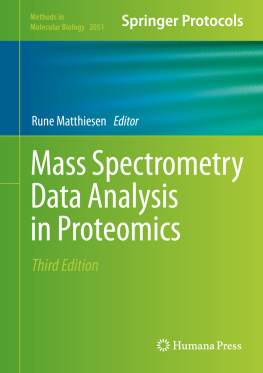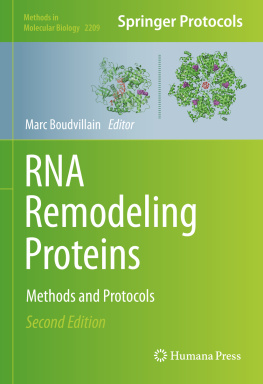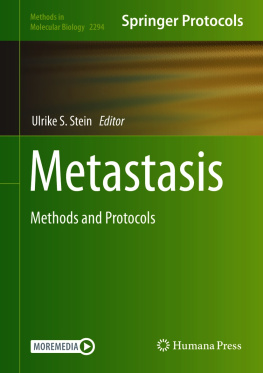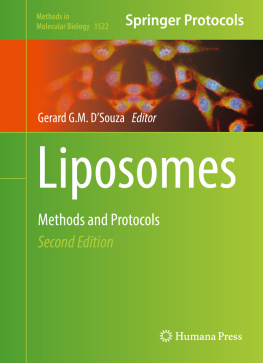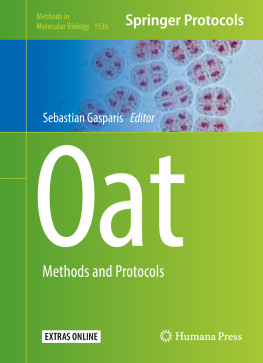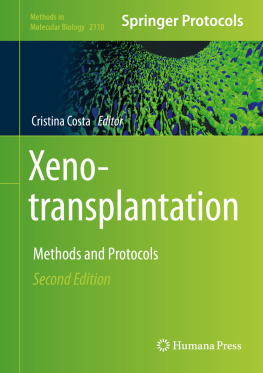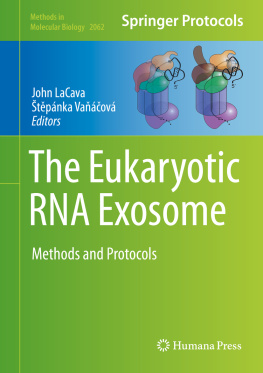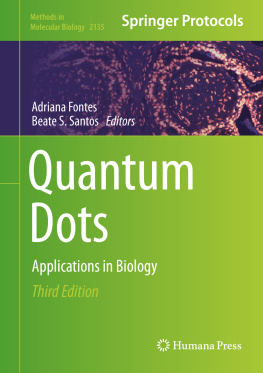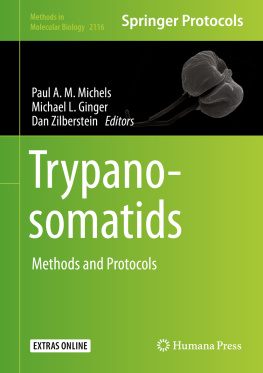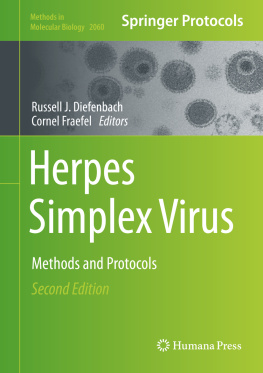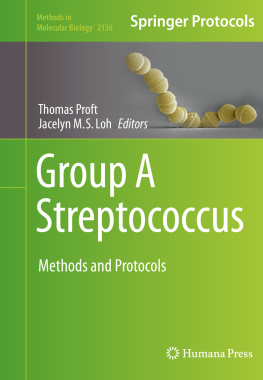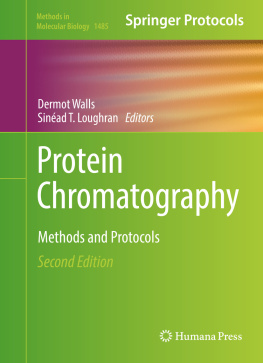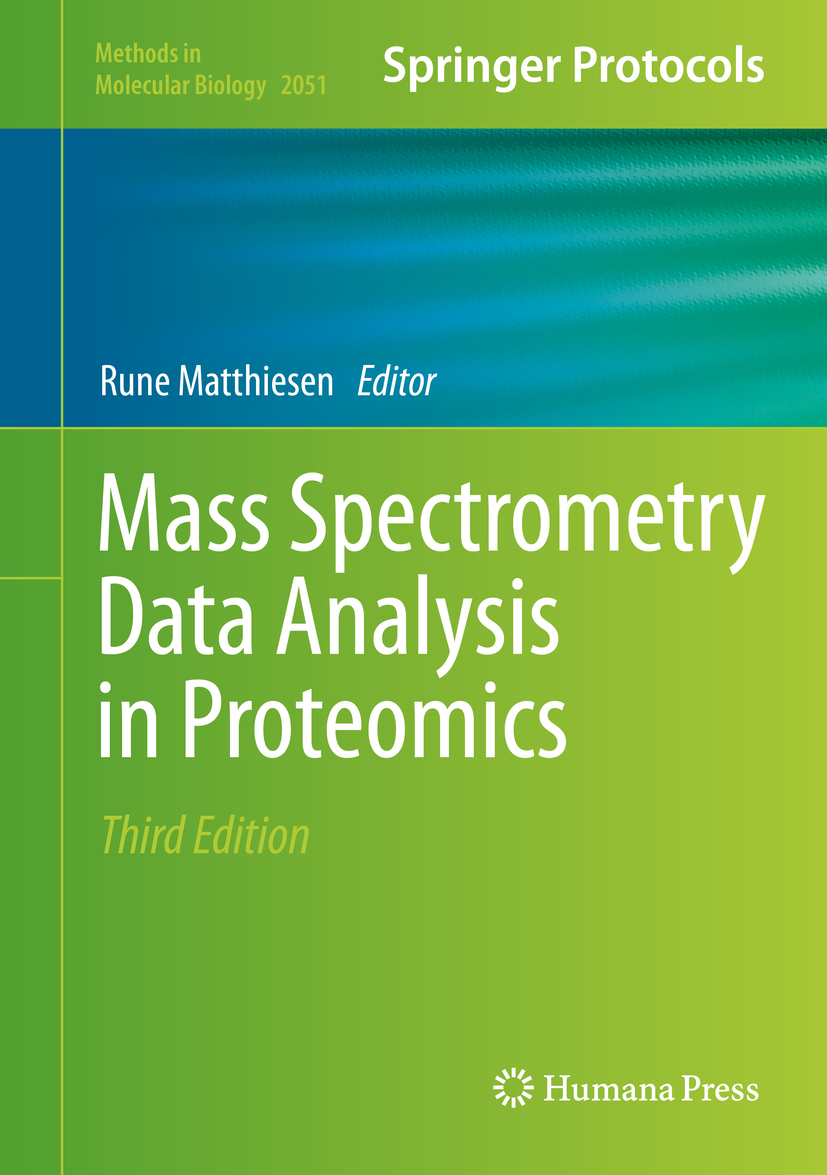Volume 2051
Methods in Molecular Biology
Series Editor
John M. Walker
School of Life and Medical Sciences, University of Hertfordshire, Hatfield, Hertfordshire, UK
For further volumes: http://www.springer.com/series/7651
For over 35 years, biological scientists have come to rely on the research protocols and methodologies in the critically acclaimed Methods in Molecular Biology series. The series was the first to introduce the step-by-step protocols approach that has become the standard in all biomedical protocol publishing. Each protocol is provided in readily-reproducible step-by-step fashion, opening with an introductory overview, a list of the materials and reagents needed to complete the experiment, and followed by a detailed procedure that is supported with a helpful notes section offering tips and tricks of the trade as well as troubleshooting advice. These hallmark features were introduced by series editor Dr. John Walker and constitute the key ingredient in each and every volume of the Methods in Molecular Biology series. Tested and trusted, comprehensive and reliable, all protocols from the series are indexed in PubMed.
Editor
Rune Matthiesen
Computational and Experimental Biology Group, CEDOC, Chronic Diseases Research Centre, NOVA Medical School, Faculdade de Cincias Mdicas, Universidade NOVA de Lisboa, Lisboa, Portugal
ISSN 1064-3745 e-ISSN 1940-6029
Methods in Molecular Biology
ISBN 978-1-4939-9743-5 e-ISBN 978-1-4939-9744-2
https://doi.org/10.1007/978-1-4939-9744-2
Springer Science+Business Media, LLC, part of Springer Nature 2020
This work is subject to copyright. All rights are reserved by the Publisher, whether the whole or part of the material is concerned, specifically the rights of translation, reprinting, reuse of illustrations, recitation, broadcasting, reproduction on microfilms or in any other physical way, and transmission or information storage and retrieval, electronic adaptation, computer software, or by similar or dissimilar methodology now known or hereafter developed.
The use of general descriptive names, registered names, trademarks, service marks, etc. in this publication does not imply, even in the absence of a specific statement, that such names are exempt from the relevant protective laws and regulations and therefore free for general use.
The publisher, the authors, and the editors are safe to assume that the advice and information in this book are believed to be true and accurate at the date of publication. Neither the publisher nor the authors or the editors give a warranty, express or implied, with respect to the material contained herein or for any errors or omissions that may have been made. The publisher remains neutral with regard to jurisdictional claims in published maps and institutional affiliations.
This Humana imprint is published by the registered company Springer Science+Business Media, LLC, part of Springer Nature.
The registered company address is: 233 Spring Street, New York, NY 10013, U.S.A.
Preface
The third edition of Mass Spectrometry Data Analysis in Proteomics starts as the previous editions with a basic introduction to mass spectrometry-based proteomics. The following chapters are written by experts in specific subdomains of proteomics. The aim is to provide detailed information on each topic to allow newcomers to follow the content but at the same time present novel ideas and views that can influence future developments in mass spectrometry-based proteomics. The authors have been offered to provide complete coverage of their domains with no page restriction. The first edition of the book was published in 2007, and we have witnessed a strong improvement in sensitivity and reproducibility of mass spectrometry-based proteomics. Furthermore, quality of computational methods has also improved. Consequently, all chapters have been updated to provide the newest and most relevant information on each topic. In contrast to the previous editions, this edition aims to also provide instructions on how to perform the most relevant computational methods such as database-dependent searches, although the focus is still on computational concepts.
There are now several examples demonstrating that clinical proteomics is reproducible, and we and many others believe that mass spectrometry will play a major role in clinical research in the coming years. Criticism of mass spectrometry often revolves around lack of throughput and it will never compete with genomics because of the lack of a method to amplify the analyte. However, clinical proteomics provides complementary information to genomics which we refer to as proteogenomics, and several methods exist to amplify the signal of protein-based targets. The analogy that the genome is like a cookbook for the organisms is justifiable. Furthermore, the sample preparation steps are often more straightforward for mass spectrometry, and new workflows allow analysis of more than 300 blood samples per day using a single instrument. However, to cook a delicious cake more is needed: a good chef, functional working tools, and fresh ingredients. To answer questions about the quality of the cake, it is often more informative to taste it rather than reading the recipe. In fact, many diseases have a major environmental component that potentially is better reflected in the proteome than the genome.
Rune Matthiesen
Lisboa, Portugal
Contents
Rune Matthiesen and Jakob Bunkenborg
Rune Matthiesen
Alan L. Rockwood and Magnus Palmblad
Alex Henneman and Magnus Palmblad
Rune Matthiesen , Gorka Prieto and Hans Christian Beck
Gorka Prieto and Jess Vzquez
Rune Matthiesen and Ana Sofia Carvalho
Jakob Bunkenborg and Rune Matthiesen
Rune Matthiesen
Barnali Deb , Irene A. George , Jyoti Sharma and Prashant Kumar
Nagore Elu , Benoit Lectez , Juanma Ramirez , Nerea Osinalde and Ugo Mayor
Sonali V. Mohan , D. S. Nayakanti , Gajanan Sathe , Irene A. George , Harsha Gowda and Prashant Kumar
Nicolai Bjdstrup Palstrm , Rune Matthiesen and Hans Christian Beck
Ana Pina , Maria Paula Macedo and Roberto Henriques
Mathias Walzer and Juan Antonio Vizcano
Jelena uklina , Patrick G. A. Pedrioli and Ruedi Aebersold
Yassene Mohammed and Magnus Palmblad
Michael J. Eggertson , Keith Fadgen , John R. Engen and Thomas E. Wales

